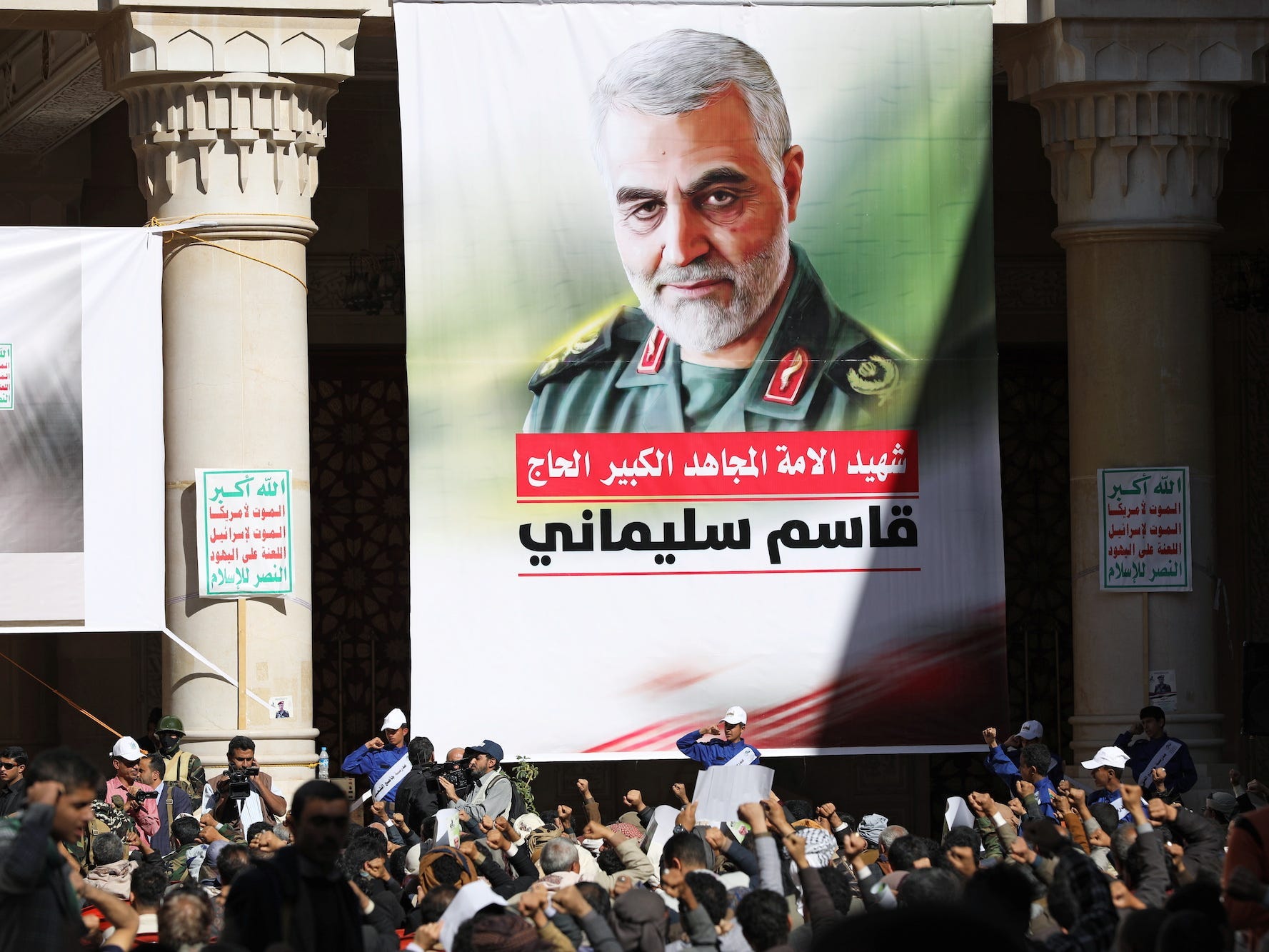
REUTERS/Khaled Abdullah
- Iran intends to resume enriching uranium to 20% purity, the Associated Press reported on Saturday.
- “We are like soldiers and our fingers are on the triggers,” Ali Akbar Salehi, the head of Iran’s civilian atomic energy organization, reportedly said on state television, adding that the country would produce 20% enriched uranium “as soon as possible.”
- Iran agreed not to enrich uranium above 4% as part of an international nuclear deal in 2015.
- President Trump exited the agreement in 2018 and reimposed sanctions on Iran, but President-elect Biden intends to rejoin and lift sanctions if the country strictly complies with international demands.
- The first anniversary of the drone strike in Baghdad, killing Iran’s most powerful military commander, General Qasem Soleimani, ordered by President Trump, is on January 3.
- Visit Business Insider’s homepage for more stories.
Iran plans to enrich uranium to 20% purity “as soon as possible,” marking its latest breach of international restrictions on its nuclear program, the Associated Press reported on Saturday.
Iranian authorities recently penned a letter to the International Atomic Energy Agency (IAEA), informing the watchdog that they plan to boost enrichment levels from under 5% to as high as 20% at one of their nuclear plants. The officials didn’t say when the increases would be implemented.
Ali Akbar Salehi, the boss of Iran’s civilian atomic energy organization, said on state television on Saturday that Iran won’t waste any time, according to the AP.
“We are like soldiers and our fingers are on the triggers,” he said. “The commander should command and we shoot. We are ready for this and will produce (20% enriched uranium) as soon as possible.”
As part of a nuclear deal in 2015, Iran agreed not to enrich uranium above 4% and allow international inspections of its nuclear facilities to exchange relief from sanctions.
President Trump exited the agreement in 2018 and reimposed sanctions. It set in motion a series of incidents that culminated in a drone strike on January 3, 2020, in Baghdad, killing Iran's most powerful military commander, General Qasem Soleimani.
The latest brinkmanship comes as renewed tension ramped up in the region in the last days of the Trump presidency.
This week, the US sent B-52 bombers to fly over the Persian Gulf region to send a message to Tehran after a rocket attack on the US Embassy in Baghdad that the Trump administration said was the work of Iranian proxy forces.
European intelligence officials are alarmed about the possibility of military action towards Iran in the waning days of the Trump administration, Insider reported in November. According to three European intelligence officials who spoke with Insider, the prospect of Trump - who has pushed for maximum pressure on Iran - or a combination of Israel or Saudi Arabia creating a military confrontation has been a concern.
President-elect Joe Biden has indicated he will seek to reenter it and lift sanctions if Iran strictly complies with international demands.
Iran's parliament passed a bill allowing 20% enrichment last month after one of the country's top nuclear scientists, Mohsen Fakhrizadeh, was assassinated in November.
The new law required the Iranian government to resume enriching uranium to 20% if sanctions on its oil and financial sectors weren't eased within two months. It also enables officials to block UN inspectors from several nuclear facilities.
Uranium is enriched to low levels to provide fuel for nuclear power plants and enriched to 20% or more for research reactors.
Higher enrichment levels might accelerate the speed at which Iran could theoretically develop a nuclear bomb, which requires around 90% enrichment levels. However, Iran has repeatedly emphasized it has peaceful goals for its nuclear program.

